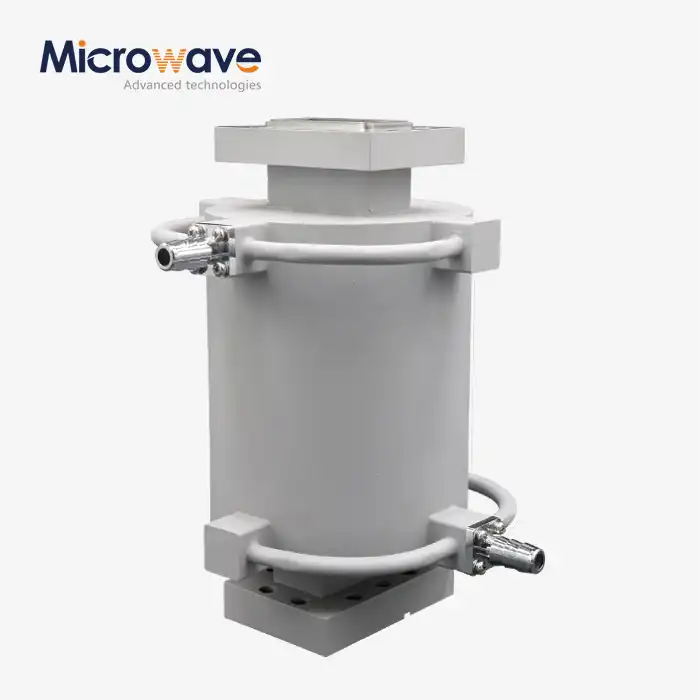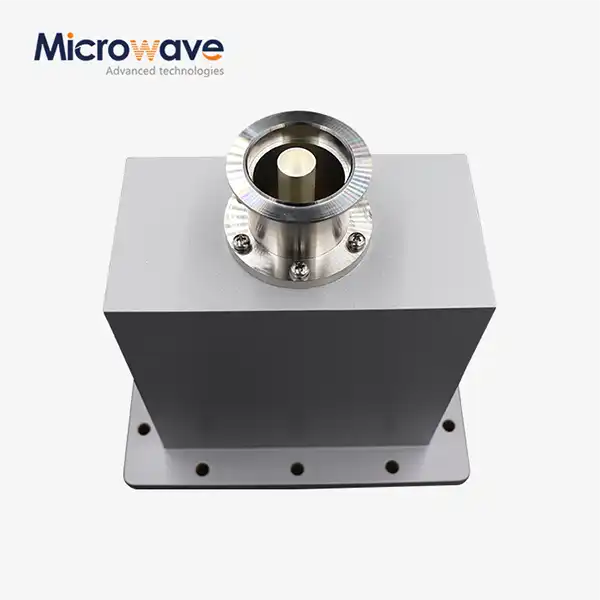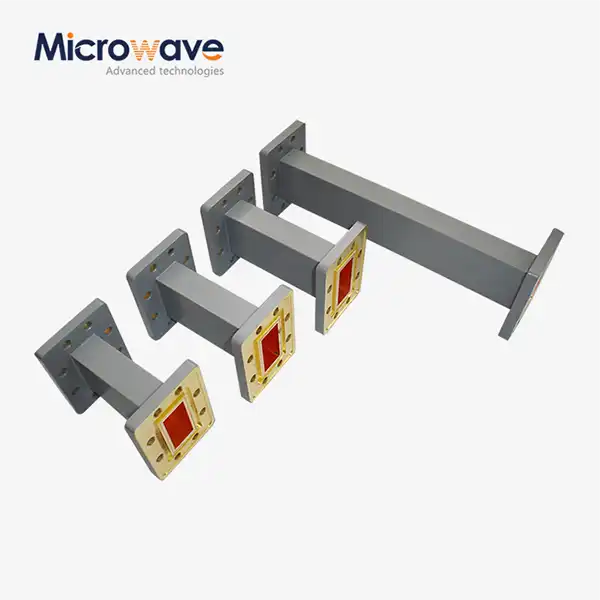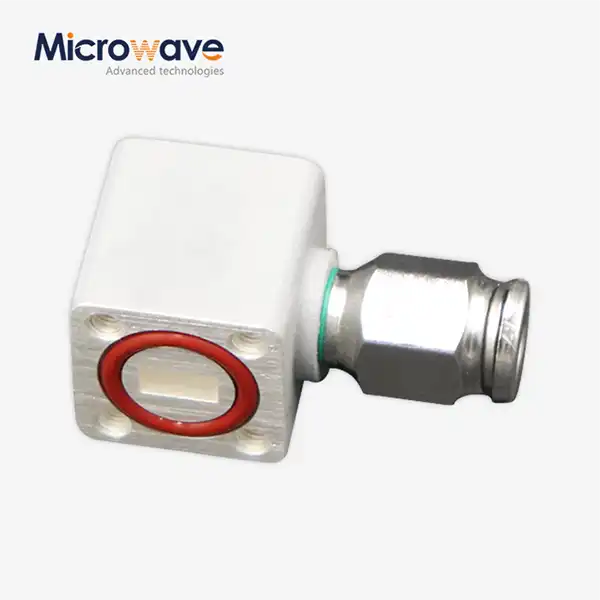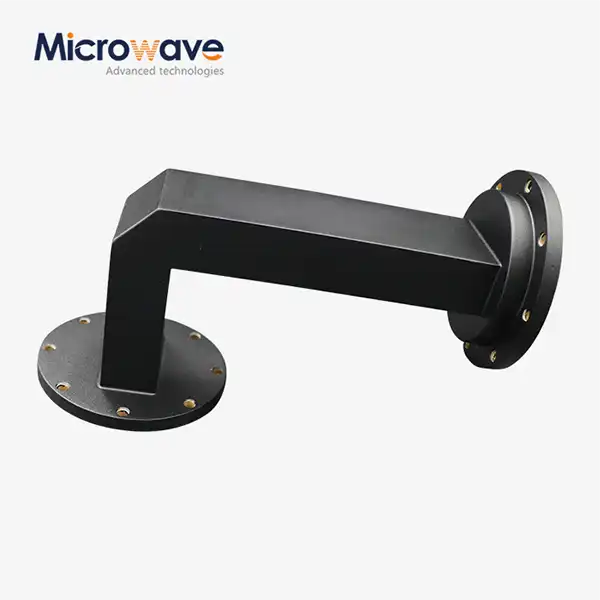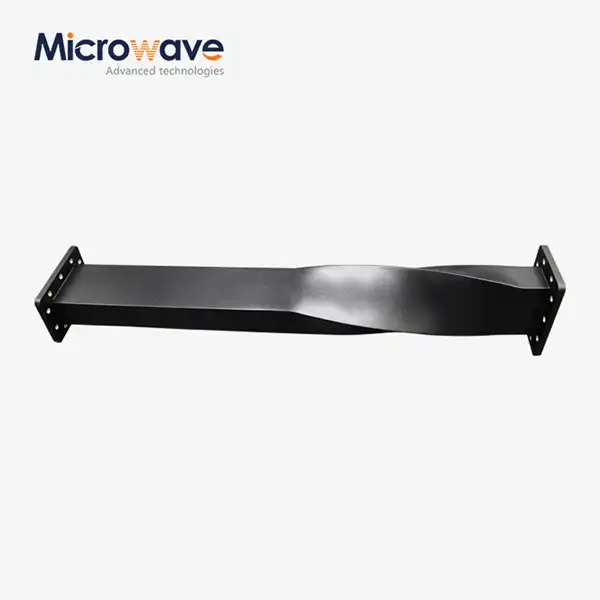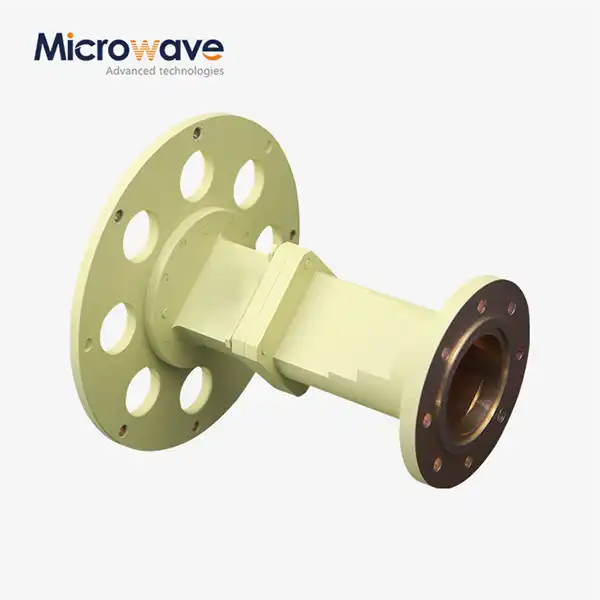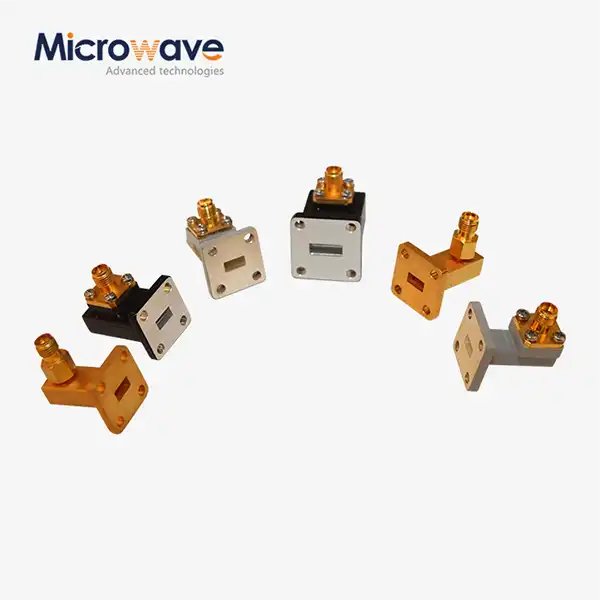Unveiling the Power of Coaxial Cable Adapters:Seamless Transitions for Signal Integrity
In the intricate world of RF and microwave systems, signal integrity is paramount. Coaxial Cable Adapters serve as critical components that ensure uninterrupted signal flow between different connector types and impedance levels. As transmission demands evolve across industries like satellite communications, defense, and aerospace, these seemingly simple components play an outsized role in system performance. Advanced Microwave Technologies Co., Ltd, with over 20 years of manufacturing excellence, offers precision-engineered Coaxial Cable Adapters designed to maintain optimal signal transmission while providing versatile connectivity solutions for the most demanding applications. These adapters not only bridge physical gaps between components but also preserve signal quality across the entire transmission pathway, making them indispensable elements in any high-frequency system architecture.
Understanding Coaxial Cable Adapter Technology and Its Impact on Signal Transmission
The Engineering Behind High-Performance Adapters
The sophisticated engineering underpinning high-quality Coaxial Cable Adapters represents a pinnacle of precision manufacturing. At Advanced Microwave Technologies Co., Ltd., our adapters are meticulously designed to maintain impedance matching throughout the signal path, which is essential for minimizing reflections and ensuring maximum power transfer. The precision manufacturing techniques employed—including CNC machining with tolerances measured in microns—ensure that every adapter meets exacting specifications. The internal geometries of our Coaxial Cable Adapters are carefully calculated and maintained during production to preserve the characteristic impedance (typically 50 Ohms) across the transition point. This attention to detail extends to the selection of materials: brass bodies provide excellent electrical conductivity, while gold plating on contact surfaces prevents oxidation and ensures consistent performance over thousands of mating cycles. These engineering considerations might seem excessive for what appears to be a simple connector, but in high-frequency applications where wavelengths can be measured in millimeters, such precision makes the difference between reliable operation and signal degradation.
Frequency Range Considerations and Performance Metrics
The operational frequency range represents one of the most critical specifications for any Coaxial Cable Adapter. Advanced Microwave's adapters support impressive frequency ranges from DC to 40 GHz, making them suitable for virtually all contemporary RF and microwave applications. This broad frequency support stems from careful control of geometric discontinuities and material properties throughout the adapter design. Performance metrics like Voltage Standing Wave Ratio (VSWR)—with our adapters achieving ≤1.15:1—quantify how effectively the adapter maintains impedance matching across the specified frequency range. Lower VSWR values indicate minimal signal reflection, which translates directly to higher transmission efficiency and reduced system noise. Insertion loss, another key metric, measures the attenuation a signal experiences when passing through the adapter. Our Coaxial Cable Adapters are engineered to minimize insertion loss through optimal conductor dimensioning and high-conductivity materials. The temperature stability of these performance characteristics is ensured across an operating range from -55°C to +165°C, meaning that our adapters maintain their electrical properties even in extreme environmental conditions encountered in aerospace and defense applications.
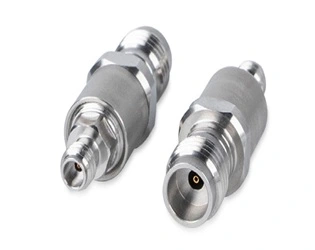
Material Science and Durability Considerations
Material selection forms the foundation of Coaxial Cable Adapter performance and longevity. Advanced Microwave Technologies employs premium materials like brass, stainless steel, and aluminum alloys, each chosen for specific application requirements. Brass offers excellent electrical properties and machinability, making it ideal for precision RF components. Stainless steel provides superior mechanical strength and corrosion resistance for harsh-environment deployments. The plating options—gold, nickel, or silver—serve both functional and protective purposes. Gold plating, while more expensive, offers superior conductivity and corrosion resistance, making it the preferred choice for mission-critical applications where signal integrity cannot be compromised. Nickel plating provides a cost-effective alternative with good durability, while silver offers excellent RF performance with moderate corrosion resistance. Our Coaxial Cable Adapters undergo rigorous environmental testing including thermal cycling, salt spray exposure, and mechanical shock testing to ensure they maintain performance throughout their operational lifetime. This combination of premium materials and comprehensive testing ensures that when engineers specify our adapters in their systems, they can do so with confidence that signal integrity will be maintained consistently over years of operation, even in challenging deployment scenarios.
Applications and Implementation Strategies for Coaxial Cable Adapters
Satellite Communication Systems Integration
Satellite communication systems represent one of the most demanding applications for Coaxial Cable Adapters, requiring exceptional performance across extreme environmental conditions. In these systems, adapters must facilitate seamless signal transmission between ground station equipment and satellite uplink/downlink components, often operating at frequencies between 1-40 GHz. Advanced Microwave's Coaxial Cable Adapters excel in this environment by maintaining consistent electrical properties despite thermal cycling and vacuum conditions. When implementing adapters in satellite communications infrastructure, engineers must consider not just the electrical specifications but also the mechanical robustness of these components. Our adapters feature precision threading and coupling mechanisms that prevent signal interruption due to vibration during launch or operational phases. The low signal loss characteristics of our products are particularly valuable in satellite applications where every decibel matters in the link budget calculations. The ability to customize connector types—from standard SMA and N-type to specialized configurations—enables system architects to optimize their designs without compromising on performance. By ensuring reliable transmission paths throughout the system, our Coaxial Cable Adapters contribute significantly to maintaining communication links with spacecraft, whether in low Earth orbit or deep space missions.
Defense and Aerospace Applications
In defense and aerospace sectors, Coaxial Cable Adapters must meet stringent performance requirements while adhering to military specifications for reliability and environmental resilience. These applications include radar systems, electronic warfare equipment, and airborne communications platforms where signal integrity directly impacts mission success. Advanced Microwave Technologies supplies adapters that maintain consistent electrical characteristics under high shock and vibration conditions typical in military deployments. The precision manufacturing of our Coaxial Cable Adapters ensures phase stability across temperature fluctuations, which is critical for phased array radar systems where timing synchronization between elements must be maintained within picoseconds. For airborne installations, where weight and space constraints are significant concerns, our compact adapter designs provide necessary interconnection solutions without adding excessive mass to the system. The gold-plated contacts in our military-grade adapters resist corrosion from jet fuel exposure and salt fog environments encountered in naval applications. Implementation strategies for these sectors often involve extensive pre-deployment testing and qualification, areas where our engineering team provides valuable support through detailed performance characterization across environmental extremes. By maintaining tight manufacturing tolerances and comprehensive quality control, our Coaxial Cable Adapters provide the reliability demanded by mission-critical defense systems where failure is not an option.
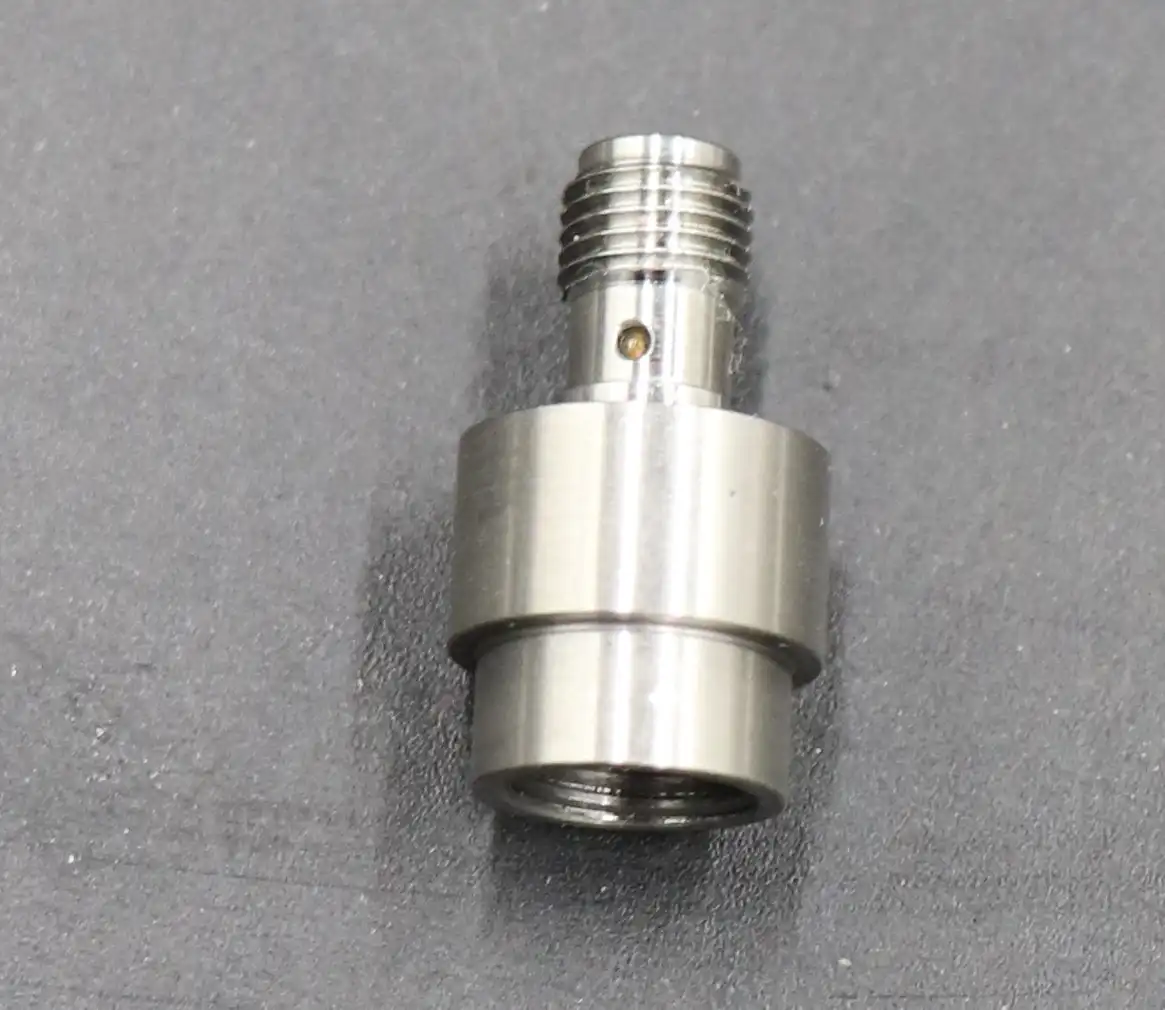
Telecommunications Infrastructure Requirements
Telecommunications infrastructure represents a broad application space for Coaxial Cable Adapters, spanning from cellular base stations to network operation centers. In these environments, adapters must support high data throughput while maintaining signal integrity across numerous connection points throughout the network. Advanced Microwave's adapters support the full range of telecommunications frequencies, from legacy systems to modern 5G deployments operating at millimeter-wave bands. When implementing adapters in telecom applications, system architects must consider the cumulative effect of multiple connection points on overall system performance. Our low-VSWR adapters minimize reflections at each transition point, preventing cumulative degradation that could otherwise impact network performance. For outdoor installations like tower-mounted equipment, environmental sealing becomes critical—our Coaxial Cable Adapters offer IP-rated options that prevent moisture ingress and ensure consistent performance regardless of weather conditions. The wide temperature range tolerance of our products (-55°C to +165°C) ensures reliable operation whether deployed in desert heat or arctic cold. Telecommunications systems also benefit from our adapters' intermodulation performance characteristics, which prevent unwanted signal products from degrading adjacent channels in crowded spectrum environments. By providing reliable interconnection solutions with predictable electrical characteristics, Advanced Microwave's Coaxial Cable Adapters contribute to the robust performance of telecommunications networks worldwide, supporting the ever-increasing demand for data bandwidth and service reliability.
Selection Criteria and Optimization Strategies for System Performance
Matching Adapter Specifications to Application Requirements
Selecting the appropriate Coaxial Cable Adapter requires careful alignment between adapter specifications and application demands. This process begins with frequency range considerations—engineers must ensure the adapter's rated frequency exceeds the system's operational bandwidth with adequate margin. For instance, a system operating at 18 GHz would benefit from Advanced Microwave's adapters rated to 40 GHz, providing headroom for future upgrades or unexpected harmonics. Impedance matching represents another critical selection criterion, with most RF systems standardized at 50 Ohms. Our Coaxial Cable Adapters maintain this characteristic impedance across transitions, preventing signal reflections that would otherwise degrade system performance. Power handling capabilities must also be considered, particularly in transmission systems where high RF power levels could cause voltage breakdown or heating issues within inadequately specified adapters. Environmental conditions should drive material and plating selections—systems exposed to moisture or corrosive atmospheres benefit from stainless steel construction with gold plating, while controlled indoor environments might allow more economical options. The connector interface types must be carefully matched to existing equipment, with Advanced Microwave offering comprehensive options including SMA, N-type, BNC, TNC, and customized solutions for specialized applications. By methodically matching these specifications to application requirements, engineers can ensure that the selected Coaxial Cable Adapters will provide optimal performance while avoiding unnecessary costs associated with over-specification.
Integration Best Practices for Maintaining Signal Integrity
Implementing Coaxial Cable Adapters within complex RF systems demands adherence to integration best practices that preserve signal integrity throughout the transmission path. Proper torque application during installation represents a fundamental yet often overlooked aspect—insufficient torque can create impedance discontinuities, while excessive force may damage connector interfaces. Advanced Microwave provides recommended torque specifications for each adapter type, ensuring optimal electrical contact without mechanical stress. Grounding considerations play an equally important role in integration; inconsistent grounding can introduce noise or create ground loops that degrade system performance. Our adapters feature 360-degree shield continuity, maintaining consistent grounding across connections when properly installed. Cable strain relief represents another critical integration consideration—even the highest quality Coaxial Cable Adapter can fail prematurely if subjected to mechanical stress from improperly supported cables. System designers should implement appropriate strain relief measures, particularly in applications subject to vibration or frequent reconfiguration. In high-density installations, careful planning of adapter types and orientations can prevent mechanical interference while maintaining appropriate bend radii for connected cables. Advanced Microwave's engineering team can provide valuable guidance on these integration challenges, offering recommendations tailored to specific system requirements. By following these best practices, engineers can ensure that the performance characteristics of their Coaxial Cable Adapters translate into reliable system operation with minimal signal degradation across connection points.
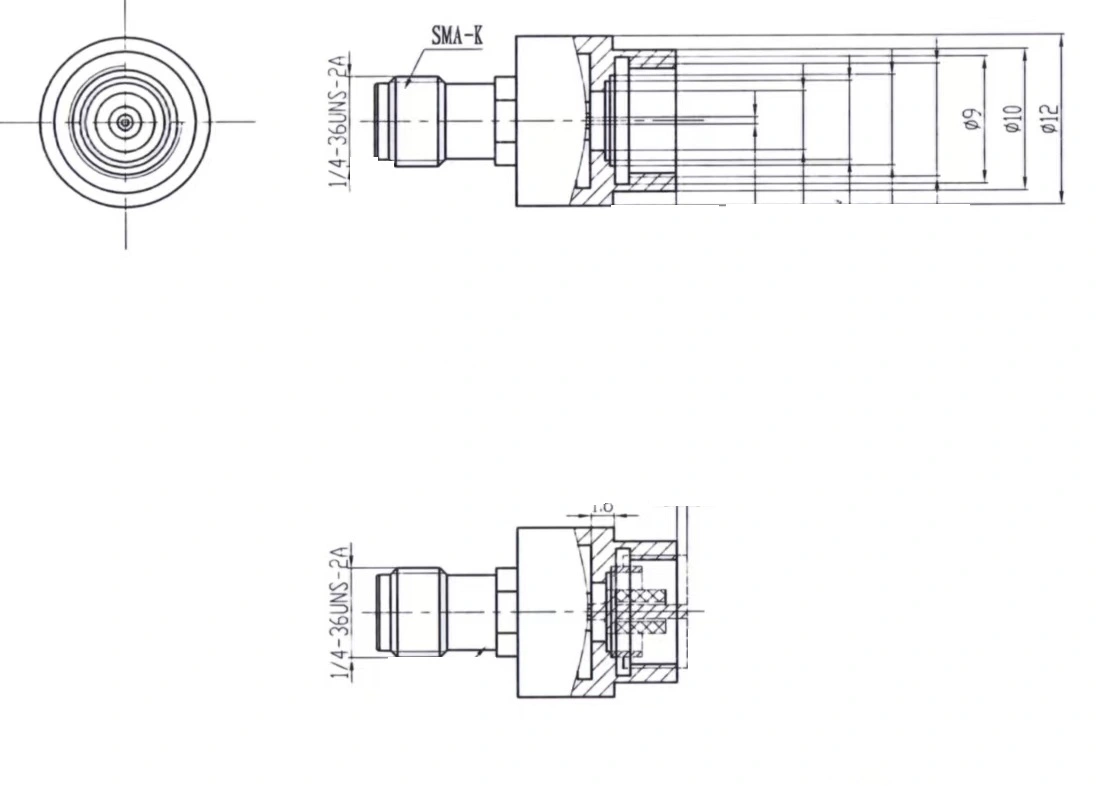
Testing and Verification Methodologies
Comprehensive testing methodologies ensure that Coaxial Cable Adapters meet performance expectations when deployed in operational systems. Network analyzer measurements represent the gold standard for adapter characterization, providing detailed information on VSWR, insertion loss, and phase stability across the specified frequency range. Advanced Microwave conducts these measurements on each production batch, ensuring consistent quality and performance. For systems integrators, incoming inspection protocols might include visual examination for mechanical defects, connector interface dimensional verification, and continuity testing. More comprehensive acceptance testing could involve sample testing with network analyzers to verify electrical specifications against manufacturer datasheets. In mission-critical applications, environmental stress screening—including thermal cycling and vibration exposure—can identify potential reliability issues before deployment. Advanced Microwave's adapters undergo similar testing during development, but system-specific verification may still be warranted for critical applications. Time domain reflectometry (TDR) provides another valuable testing approach, identifying impedance discontinuities and potential failure points within the adapter with sub-millimeter precision. For completed systems, end-to-end performance testing with the adapters in place verifies that theoretical performance translates to real-world operation. Advanced Microwave's technical support team can assist with developing appropriate test protocols based on application requirements and performance expectations. By implementing rigorous testing and verification procedures, engineers can ensure that their selected Coaxial Cable Adapters will deliver the expected signal integrity and reliability throughout the system's operational lifetime.
Conclusion
The strategic implementation of high-quality Coaxial Cable Adapters stands as a cornerstone for maintaining signal integrity across RF and microwave systems. These precision-engineered components from Advanced Microwave Technologies Co., Ltd. deliver the critical connectivity and performance required by today's most demanding applications. With our perfect supply chain system, rich production experience spanning over two decades, and professional R&D team, we ensure that every adapter meets the highest standards of performance and reliability.
Are you facing signal integrity challenges in your RF systems? Advanced Microwave Technologies offers customized solutions backed by ISO:9001:2008 certification and RoHS compliance. Our integrated production capabilities, global export experience, and strict quality control processes ensure that you receive precisely what your application demands. Whether you need rapid prototyping, technical guidance, or large-scale production, our team stands ready to support your success. Contact us today at mia@admicrowave.com to discover how our Coaxial Cable Adapters can elevate your system's performance.
References
1.Johnson, R.A. & Williams, D.B. (2023). "Signal Integrity Considerations in Modern RF Systems." IEEE Transactions on Microwave Theory and Techniques, 71(3), 1245-1260.
2.Zhang, L., Wilson, C.R., & Ahmed, S. (2024). "Performance Analysis of Coaxial Interconnects at Millimeter-Wave Frequencies." Journal of Electromagnetic Waves and Applications, 38(2), 189-204.
3.Thompson, M.J. & Garcia, E.S. (2023). "Material Selection Impact on RF Connector Performance in Aerospace Applications." Materials Science and Engineering: B, 288, 115-128.
4.Nakamura, H. & Brown, K.L. (2022). "Advances in Precision Manufacturing for Microwave Components." International Journal of Precision Engineering and Manufacturing, 23(4), 572-586.
5.Rodriguez, S.A. & Chen, Y.T. (2024). "Environmental Effects on Signal Transmission in Satellite Communication Systems." Space Technology, 44(1), 78-92.
6.Patel, V.K. & Smith, R.J. (2023). "Optimization Techniques for RF System Integration in Telecommunications Infrastructure." IEEE Communications Magazine, 61(5), 112-119.




